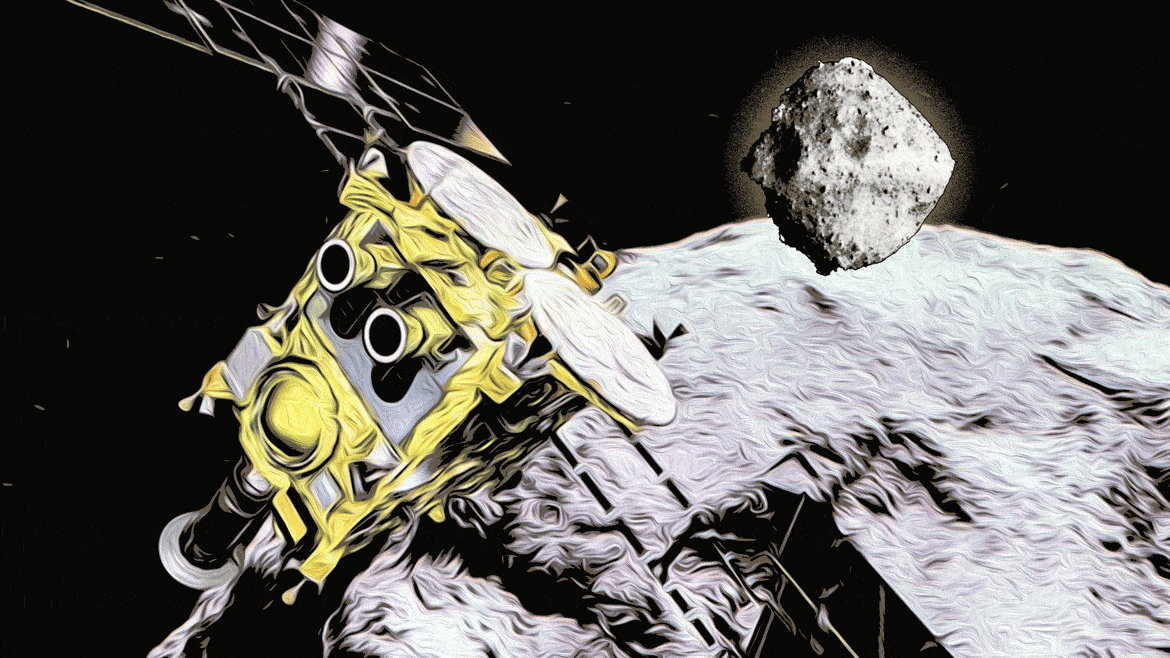The Daily Beast / Courtesy of JAXA
Back in 2010, Japan’s space agency JAXA completed one of the biggest milestones in the history of space exploration: It collected samples from an asteroid and brought them back to Earth. A decade later, the agency’s Hayabusa2 mission did the same thing with another asteroid called Ryugu—with a vastly more ambitious goal of bringing back an even bigger cache of extraterrestrial rock samples. For the past few years, scientists on Earth have been uncovering the chemical secrets embedded within these samples and whether there’s anything we can glean about the origins of the solar system and its planets. As it turns out, we’ve learned that Ryugu is home to a very special compound that’s a building block of genetic information itself.
On Tuesday, Japanese scientists revealed they discovered within the Ryugu samples the presence of uracil, a component that’s critical to the makeup of RNA. They also discovered nicotinic acid, better known as Vitamin B3 or niacin, which is important for allowing organisms to run metabolic functions.
Both materials have been previously discovered in carbon-rich meteorites that have impacted Earth. But, “this is the first time they have been detected in any returned samples from space,” Yasuhiro Oba from Hokkaido University, who led the new study, told The Daily Beast in an email. “Based on this finding, we can say uracil is indeed present in space.” The findings were reported in Nature Communications.

